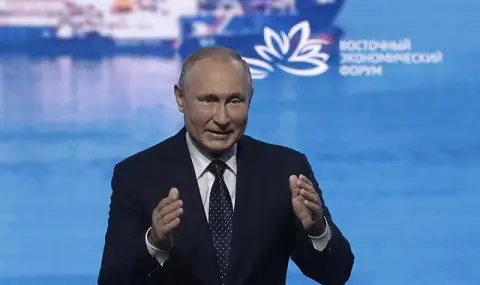Russian President Vladimir Putin failed to deny the presence of North Korean military personnel in Russia on October 24, following official Ukrainian reports that the first military units had arrived in Kursk Oblast on October 23.
According to the data, the Russian military spent several weeks coordinating with North Korean military units. North Korea has transferred about 12,000 military personnel, including 500 officers and three generals, to Russia. Russian Deputy Defense Minister Colonel General Yunus-Bek Yevkurov is responsible for overseeing the training and adaptation of North Korean military personnel. The Russian military provides ammunition and other personal equipment.
This is stated in the daily bulletin of the "Institute for the Study of War" (ISW).
Putin was responding to a question at a news conference after the BRICS summit in Kazan, Republic of Tatarstan, about recently released South Korean intelligence satellite images reportedly showing North Korean troops in Russia. Putin ironically replied that "photos are a serious thing" and "reflect something".
Putin recalled the strategic partnership agreement with North Korea announced in June 2024 and officially ratified by the Russian State Duma on October 24, 2024.
Belarusian President Alexander Lukashenko has hinted that Belarusian forces will not fight in Ukraine and appeared to question his Russian counterpart's possible efforts to bring North Korean forces into the war against Ukraine. Lukashenko responded to a BBC question on October 23 that these reports were "nonsense", Putin "would never try to convince" another country to participate and that the deployment of armed forces by any country would be "a step towards escalation" of the war.
The Kremlin is trying to present the BRICS summit in Kazan, Republic of Tatarstan, as evidence of broad international support for Russia - especially for domestic audiences in Russia. Russian opposition publication Meduza reported on October 24 that it had reviewed a Russian presidential administration manual for Russian state media and propagandists with guidelines on how to cover the ongoing BRICS summit in Kazan.
The guide outlines three main themes: Russian President Vladimir Putin is the "unofficial leader of the world majority", Western elites are "panicked" and "the anxiety" is prevalent in the West as a whole. The Kremlin wants the media to report that the BRICS summit is "attracting the world" and proves that "attempts to isolate" of Russia after the start of the war in Ukraine are "failed". Meduza reported that the media should highlight how Putin is establishing "strategic ties that are not limited to one direction" - in contrast to the supposed "fleeting alliances" in the West (NATO celebrated its 75th anniversary this year).
Russian state media and propagandists have recently published articles highlighting many of these themes, closely following the manual.
Ukrainian authorities are investigating another execution of Ukrainian prisoners of war by Russian forces in the direction of Pokrovsk. The Prosecutor General's Office of Ukraine announced on October 24 that it was opening a pre-trial investigation into the killing of Ukrainian prisoners of war by Russian forces near Selidove (southeast of Pokrovsk).
The Prosecutor General's Office reported that Russian forces captured four Ukrainian servicemen near Selidove on October 6 and filmed their interrogations, and that Ukrainian forces recovered the bodies of the four slain servicemen after retaking lost positions on October 7 . The Attorney General's Office has not released any photos or footage corroborating this report.
Ukraine's human rights ombudsman Dmytro Lubinets said on October 24 that he had sent letters to the United Nations (UN) and the International Committee of the Red Cross (ICRC) about violations by Russian forces of the Geneva Convention for the Treatment of Prisoners of War.
Ukrainian officials recently reported that Russian forces executed two unarmed Ukrainian prisoners of war near Selidove on October 18.
